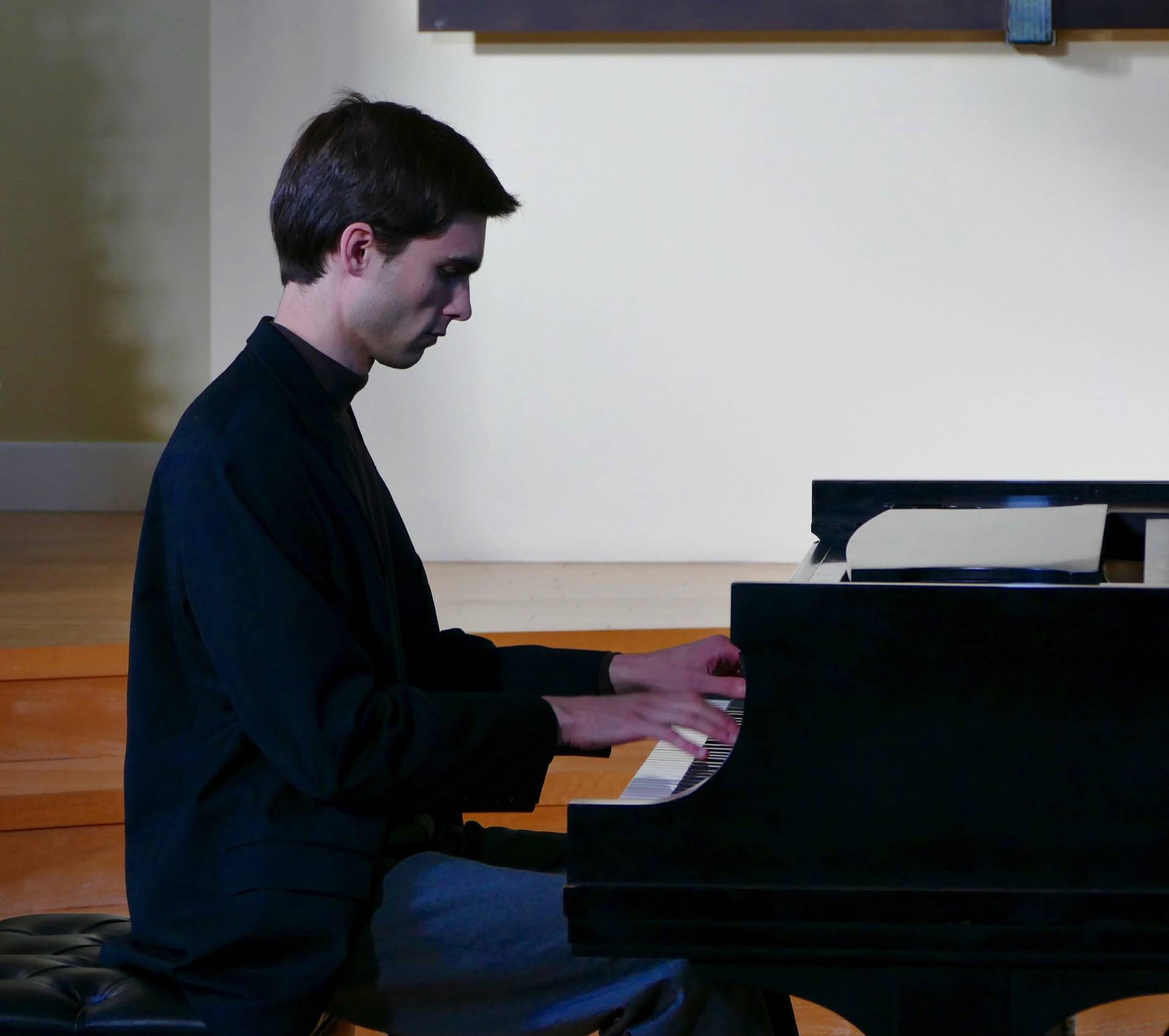A virtuoso performance of piano works by French, German and American composers, augmented with scholarly observations by the noted pianist, Cole Anderson, is coming up soon at Vashon Center for the Arts.
The concert, set for 7:30 p.m. Saturday, Sept. 7, at Vashon Center for the Arts, will span three centuries of musical experience — classical and baroque, impressionist, and 20th-century jazz, as Anderson plays works by Fanny Mendelssohn, George and Ira Gershwin, and Maurice Ravel.
Anderson earned his Bachelor of Music degree from Oberlin Conservatory and master’s and doctoral degrees in music from the University of Michigan. Examples of his engaging lecture style can be seen on his YouTube channel, “The Independent Pianist.”
Recently, local musicologist Mike Tracy sat down with Anderson to discuss his much-anticipated program.
Tracy: Fanny Mendelssohn was the gifted sister of Felix Mendelssohn, but her compositions are rarely performed. Why did you choose Fanny Mendelssohn and her Bach-inspired “Klavierbuch?”
Anderson: Initially, I happened to hear a recording of the prelude from this suite, and I thought that it was absolutely fascinating with its quasi-Baroque style, so reminiscent of J.S. Bach — at the same time also so clearly an example of budding romanticism. I thought to myself “Wouldn’t it be great if there was also a fugue that went along with this prelude?” I did some digging and found that there was indeed a fugue — and four more movements that formed this Neo-Baroque suite, [which] until 2022[were] only available in Fanny’s manuscript.
Luckily, the good people at Henselpushers.org published a digital edition in 2022. As soon as I read it through, I realized that I had stumbled upon one of the great character-piece suites of the 19th century, unjustly neglected for nearly 200 years, and I became obsessed with making a complete recording of the work and performing it in my concerts. Fanny’s complete piano works are now available on Henselpushers.org, and I’m going to relish playing through every piece in the catalog.
Through your YouTube channel, “The Independent Pianist,” you explore many facets of piano playing, such as great recordings of past pianists, different interpretations of great works, and technical studies. How do you select your program subjects and manage the production?
My channel is one of my endeavors that has been the most rewarding so far in my musical life. The channel started out with a premise: talk about a piece of music, give some background and some analysis, and then perform it with the score following along above my hands.
Since starting [the channel], I have done all my video production and editing myself.
For a novice listener hearing Ravel’s “Miroirs” for the first time, what approach would you recommend on how to listen and follow one of the most colorful yet complex works for the piano?
One of the things I think is so extraordinary about Ravel is that even though the music is so technically accomplished and complicated, its effects seem completely natural and artless. Frequently, his titles conjure up images from nature: a boat on the ocean, birds singing in a dense forest, the play of water in a fountain, moths fluttering around at night, and so forth — and his music so vividly brings this all to life in sound.
My advice for listeners is pretty much the same for pianists who try to play Ravel: don’t get too caught up in the technicalities, and instead focus on the greater poetic meaning. Instead of getting too caught up in studying the pianist’s hands (as fun though that may be), try closing your eyes and letting your imagination conjure up the scenes suggested by Ravel’s titles.
For the second half of your recital, we will hear George Gershwin’s songs arranged by Earl Wild. Isn’t it a pity we won’t hear Ira Gershwin’s lyrics that superbly matched George’s music? Do Ira’s lyrics inform your playing?
Absolutely! Ira and George wrote these songs hand-in-hand, and I can never hear or play the melodies without thinking of the words, they fit each other so perfectly. I’ve often been inspired to linger on a particularly lovely chord precisely because of the word that belongs there. In a larger sense, pianists should never get too far from the naturalness of the human voice in song, and transcriptions like these just bring that point to the forefront.
Find out more and get tickets to Anderson’s concert at vashoncenterforthearts.org.



